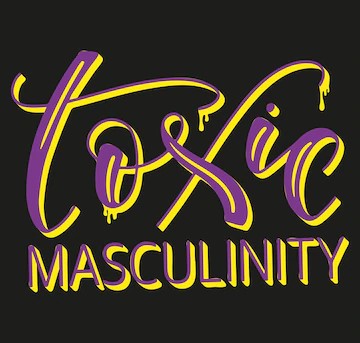We frequently hear about the destructive character of masculinity.
The effects of toxic masculinity on society are frequently debated. The consequences it may have on a person have also been studied, but typically from the standpoint of the aggressor or victim of aggression.
There are additional health issues to take into account, even if they remain both legitimate worries and areas of investigation. A 2015 national survey found that nearly 9% of men experienced daily depression and anxiety, but fewer than half of those surveyed had ever sought help for their symptoms, either through professional counseling or medication.
Toxic masculinity, also known as destructive masculinity, refers to a collection of attitudes and practices that are associated with a conventional and possibly outmoded view of gender roles. To learn more about toxic masculinity, seek Online Counselling at TalktoAngel.
It’s not necessarily harmful or problematic to be a man. What might be are the term’s conventional, generally recognized meaning and the potentially detrimental ways it might manifest itself in society.
Weakness is always viewed negatively and frequently associated with femininity when toxic masculinity is present.
This is the point where toxic masculinity and sexism intersect. Femininity is stigmatized in misogyny, which is frequently described as the hatred of women rather than merely acknowledging their existence.
A 2020 U.S. study claims that toxic masculinity might foster the idea that “real” masculinity must take on certain characteristics, including antagonism, violence, and hyper-resilience.
This might resemble the following:
The expectation or desire for “toughness.”: This can take the form of hostility at times or both mental and physical toughness.
Comparing emotions and sensations to weakness could cause you to hide your feelings or emotions, become indifferent to other people’s sentiments, or even completely avoid them.
Discrimination: This can manifest as fatphobia, homophobia, transphobia, or other forms of prejudice based on toxic ideology.
The following are examples of toxic masculinity traits:
- Both physical and mental fortitude
- Aggression
- Stoicism, or the lack of showing emotion
- Prejudice against those who aren’t straight or heterosexism
- Self-sufficiency
- Emotional indiscipline
Due in large part to the fact that the idea of masculinity differs among cultures, religions, and social strata, it is difficult to identify a single factor that causes toxic masculinity.
Age-related differences in masculine values might exist even within the same culture, religion, or class.
In the United States, cultural views frequently support toxic masculinity. According to a 2018 Pew Research Center survey, for instance, men’s protective behavior was viewed favorably by respondents. However, being sensitive or emotional was viewed negatively.
Although toxic masculinity is frequently perceived as being damaging to others, males and people who identify as male also suffer actual consequences as a result of it.
According to 2014 research, maintaining toxic masculinity can harm men’s physical and mental health, which can lead to insomnia and despair.
According to additional research, men are hesitant to seek medical attention when it is necessary because they worry about coming across as helpless or incapable of supporting their families. Men may not seek necessary preventive care because of this way of thinking.
Both the individual and the people they interact with may be impacted by toxic masculinity.
Effects on Society
An important factor in the development of rape culture is accepting this destructive view of masculinity. This is the viewpoint that blames sexual assault should be placed on the victim rather than the offender.
You may have heard the adage “boys will be boys,” which is infamous for relieving “boys”—typically grown men—of personal responsibility because of what they perceive masculinity to entail.
One instance of this is when women or people who present as feminine are questioned about their actions following an assault on the assumption that the occurrence was somehow their fault or could have been prevented rather than placing blame on the macho person.
This traditional conception of masculinity affects more than simply individuals who are born with the gender assigned to them or who identify as men.
Individuals who are frequently victimized by misogyny may unwittingly embrace some of these views, which is known as internalized misogyny. Women, nonbinary people, and others who identify as feminine are also exposed to damaging behaviors because misogyny and toxic masculinity frequently go hand in hand.
This could manifest as someone criticizing their masculine partner for making personal decisions they find feminine or criticizing a female acquaintance for partaking in activities they find to be masculine.
How to Address Toxic Masculinity
Toxic masculinity is an issue, and there is no one solution. To do this, society must make changes to a number of norms, such as gender stereotypes and the stigma associated with mental illness.
However, there are several things men or people who identify as men may do to lessen the negative effects of toxic masculinity in their own lives and the lives of those around them:
Accept where you are and accept yourself there. Everyone has a place to start. There is no way to change or advance if you can’t be honest about the things you want to change. It’s possible that you didn’t communicate adequately in previous relationships. Or perhaps you’ve frightened people with your physical strength or dominance. Don’t criticize yourself for the past.
Have difficult discussions. Get feedback from your friends, especially those whose gender identities and expressions differ from yours, on how you manage challenging situations or your biases toward masculinity. Give others’ reactions your full attention and try to resist the urge to defend yourself. You might be shocked to learn that certain things you said or didn’t come out the way you intended.
Work hard. Above all, being true to yourself, rather than some ideal of the person you should be, is the key to overcoming toxic masculinity as a guy or male-identifying individual. It takes time to discover who you truly are. You can be guided through this process by a therapist, who can also assist you in changing negative thought habits.
The impacts of toxic masculinity are felt by most people at some point since it is so deeply ingrained in society. Making an effort to avoid putting certain traits on specific gender identities is the second step in attempting to dismantle it after being aware of it and identifying it.
Being content with who you are is a positive step, regardless of your gender identity and expression (or anyone else’s).
For more information, seek consultation from the best Psychologist near me at TalktoAngel.
Also check – Benefits Of A Slow Thinker




January 1, 2023
[…] Also check – How To Address Toxic Masculinity […]